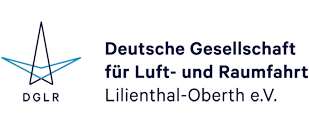DGLR-Publikationsdatenbank - Detailansicht
Autor(en):
G. Bokil, T.-F. Geyer, S. Wolff
Zusammenfassung:
Heat exchangers (HEX) are one of the most crucial components in the thermal management system of future electrified aircraft. To precisely model the convective heat transfer, high-fidelity Computational Fluid Dynamics (CFD) simulations are commonly carried out. However, due to their complexity, employing them in a design optimization loop is computationally expensive. This might lead to sub-optimal designs. One possible solution to solve this problem is to develop surrogate models to replace simulations with predictions. In recent trends, Convolutional Neural Networks (CNN) have shown large potential in modeling external aerodynamic flows. By employing this approach for heat exchangers, a geometry-adaptive U-net is developed to predict the velocity, pressure and temperature distribution of the air flow over various HEX fin configurations directly from geometry and boundary conditions. The model is trained on the steady state results obtained from solving unsteady Navier-Stokes equations using the open-source simulation toolkit Phiflow. The trained model is able to predict the flow fields for unseen fin configurations with an accuracy of 95 %. Moreover, it estimates the scalar pressure drop and temperature difference with an error of only 4 %. Due to the notably reduced computational cost compared to CFD simulations, the surrogate model can prove useful in performing rapid heat exchanger optimization to minimize pressure drop and maximize heat transfer.
Veranstaltung:
Deutscher Luft- und Raumfahrtkongress 2023, Stuttgart
Verlag, Ort:
Deutsche Gesellschaft für Luft- und Raumfahrt - Lilienthal-Oberth e.V., Bonn, 2023
Medientyp:
Conference Paper
Sprache:
englisch
Format:
21,0 x 29,7 cm, 10 Seiten
URN:
urn:nbn:de:101:1-2023102013162989075675
DOI:
10.25967/610419
Stichworte zum Inhalt:
convolutional neural network, surrogate modeling, computational fluid dynamics, convective heat transfer
Verfügbarkeit:
Download
- Bitte beachten Sie die Nutzungsbedingungen dieses Dokuments: Copyright protected
Kommentar:
Zitierform:
Bokil, G.; Geyer, T.-F.; Wolff, S. (2023): Towards Convolutional Neural Networks for Heat Exchangers in Electrified Aircraft. Deutsche Gesellschaft für Luft- und Raumfahrt - Lilienthal-Oberth e.V.. (Text). https://doi.org/10.25967/610419. urn:nbn:de:101:1-2023102013162989075675.
Veröffentlicht am:
20.10.2023
